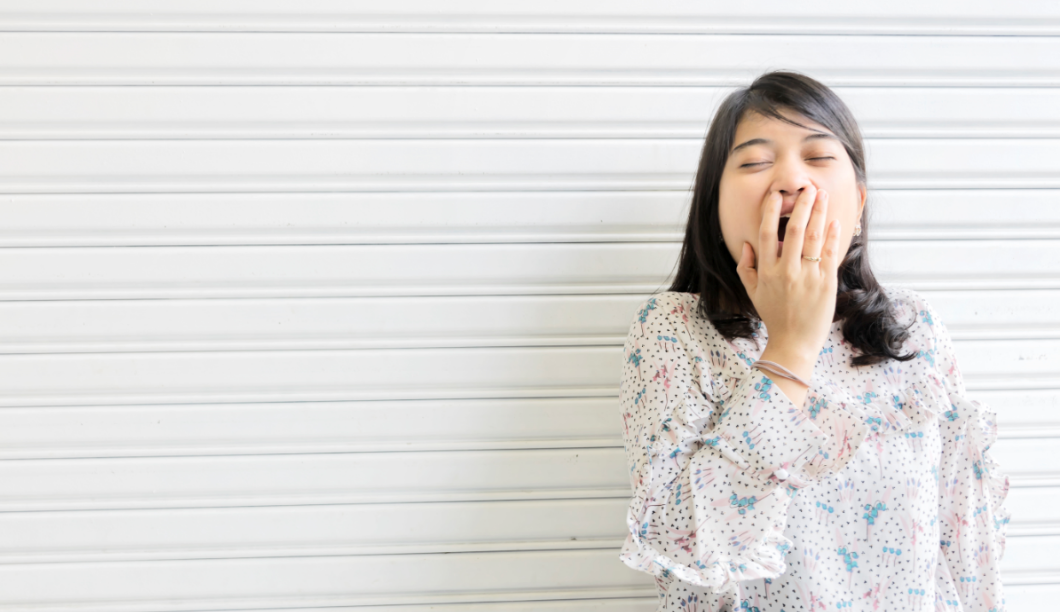Five things you should know.
Doctors have long recognized a complicated dynamic between sleep and seizure activity in people with epilepsy. As a neurologist who specializes in treating epilepsy, as well as sleep disorders, Dr. Nancy Foldvary-Schaefer is on the cutting edge of research into novel ways to improve the lives of patients with seizure disorders.
At the Cleveland Clinic in Ohio, where Dr. Foldvary-Schaefer is the Director of the Sleep Disorder Center, physicians have found that one effective and often overlooked avenue for treatment is simply helping patients get a good night’s sleep. Dr. Foldvary-Schaefer explains the most important highlights to know.
1 DAYTIME SLEEPINESS IS THE MOST COMMON COMPLAINT
For anyone experiencing excessive daytime drowsiness, every aspect of life can feel difficult. Grumpy moods can affect relationships. Lack of energy can make it hard to exercise or complete to-do lists. Poor concentration can lead to mistakes and difficulty at work. “Among people with epilepsy, excessive daytime sleepiness is the number one complaint,” says Dr. Foldvary-Schaeffer. “Many medications used to treat epilepsy can cause drowsiness, but chronic untreated sleep/wake disorders are a huge contributing factor, as well.” It is estimated that 85-90% of patients with seizure disorders are not getting treated for sleep issues.
2 MANY PEOPLE WITH EPILEPSY STRUGGLE WITH SLEEP
In a recently published paper, Dr. Foldvary-Schaefer says, “Sleep/wake disorders are 2–3 times more common in adults with epilepsy than in the general population. These include insomnia, restless legs syndrome and sleep disordered breathing. These comorbidities are associated with poorer quality of life and may impact seizure control.”
3 THE RELATIONSHIP IS BI-DIRECTIONAL
“Sleep is a very active state for our brains,” explains Dr. Foldvary-Shaffer. “REM sleep is actually very neuro-protective.” In patients with epilepsy, sleep can activate seizures causing arousals and prevent patients from getting adequate REM. “This means that sleep is unrefreshing,” Dr. Foldvary-Shaffer states. Epilepsy interferes with good quality sleep, and lack of sleep is known to make epilepsy worse, making it a bidirectional relationship. Because of this, improving sleep quality can reduce overall seizure activity and reduce the dosages needed for some medications.
4 TREATING OSA COULD PREVENT SUDEP
Sudden Unexpected Death in Epilepsy (SUDEP) is a frightening possibility for anyone who has, or loves someone who has, epilepsy. To prevent SUDEP, many doctors advise patients to sleep on their backs. However, back sleeping can exacerbate obstructive sleep apnea (OSA), a disorder where the airway repeatedly becomes blocked when the throat relaxes during sleep, disrupting sleep. According to Dr. Foldvary-Schaeffer, OSA is 2.4 times more common among adults with epilepsy. Treatment with a CPAP machine can help keep the airway open during sleep, as well as during a seizure, making it safer for epilepsy patients to sleep on their backs.
5 TREATING SLEEP DISORDERS CAN IMPROVE SEIZURES
“Treatment with CPAP had 5-fold odds of improved seizure outcomes,” says Dr. Foldvary-Schaeffer, referencing a meta-study in patients with OSA. She also wants more people to be aware of “a recent surge in research” connecting epileptic events with circadian rhythms. By focusing on good quality sleep routines and treating underlying sleep disorders, patients with epilepsy can experience fewer seizures, less drowsiness and an improved quality of life.
Per a study done in February 2021 that followed 222 participants through 10 years, the prevalence of circadian (approximately 24 hours) seizure cycles was 89%. Circadian seizure cycles showed five peak times of seizure occurrence: morning, mid-afternoon, evening, early night and late evening through brain wave monitoring. Peaks were also noticed around 7, 15, 20 and 30 days.
……………………………………………..
Shanti Argue is a freelance writer who loves researching and writing about a variety of topics.
References
https://pubmed.ncbi.nlm.nih.gov/33555292/
https://www.epilepsybehavior.com/article/S1525-5050(20)30915-X/fulltext



